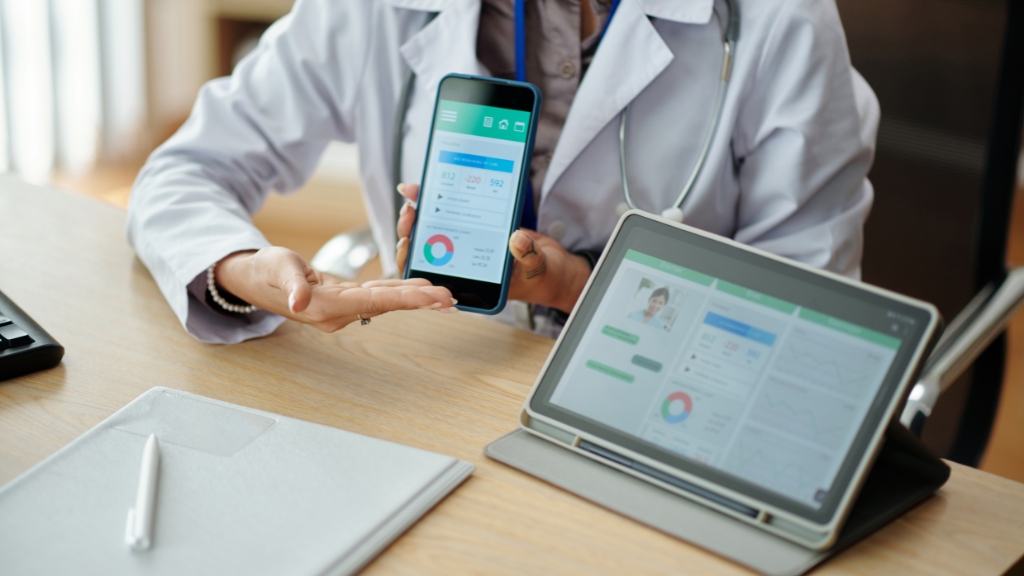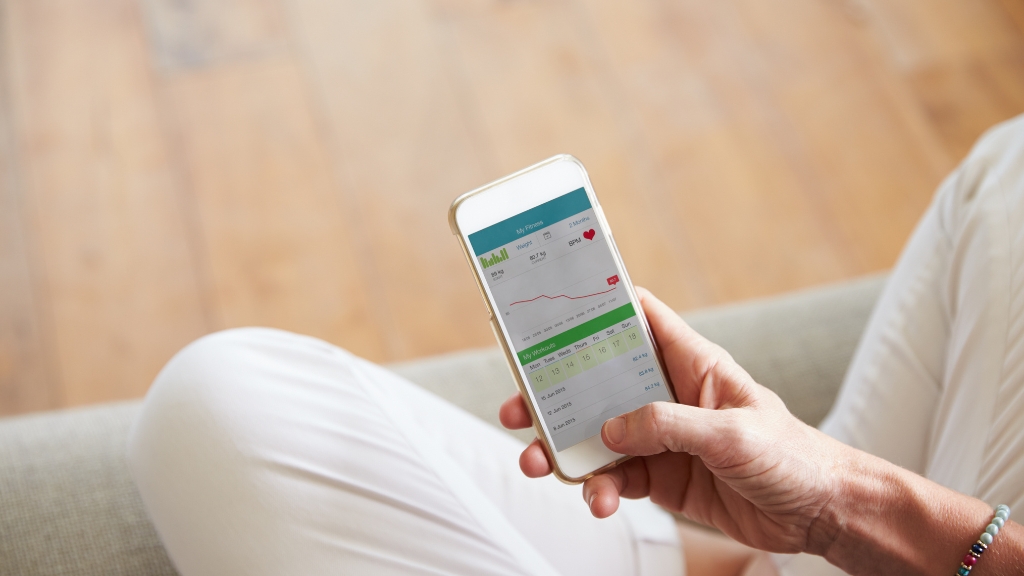
how do ehrs help prevent liability actions for providers ?
EHRS Help Prevent Liability Actions For Providers
Electronic Health Records (EHRs) have become an essential tool for healthcare providers in recent years. The use of EHRs has revolutionized medical documentation, patient care, and communication between providers and patients. One of the significant advantages of EHRs is how they help prevent liability actions for providers.

EHRs contribute to reducing liability risks for healthcare providers by ensuring accurate and complete medical records are maintained. With EHRs, providers can track outcomes, identify areas for improvement, and provide data analytics and reporting tools. EHRs can help providers improve the quality of care they deliver, which can reduce the risk of liability actions. Better patient engagement is another benefit of EHRs, as they provide an essential means to bridging patient and provider communication.
Key Takeaways
- EHRs help prevent liability actions for providers by ensuring accurate and complete medical records are maintained.
- EHRs contribute to reducing liability risks for healthcare providers by providing data analytics and reporting tools.
- EHRs improve the quality of care providers deliver, reduce the risk of liability actions, and enhance patient engagement.
Understanding EHRS
Electronic Health Records (EHRs) are digital versions of paper medical records. They contain patient health information, including medical history, diagnoses, medications, treatment plans, immunization dates, allergies, radiology images, and laboratory and test results. EHRs are designed to be shared between different healthcare providers and organizations, allowing for better coordination and continuity of care.
The Office of the National Coordinator for Health Information Technology (ONC) oversees the development and implementation of EHRs in the United States. EHR vendors provide software solutions that allow healthcare providers to create and manage EHRs. The ONC has developed standards and certification criteria to ensure that EHRs are secure, interoperable, and meet meaningful use requirements.
One of the advantages of EHRs is that they help prevent liability actions for providers by ensuring accurate and complete medical records are maintained. By giving healthcare personnel a thorough understanding of a patient’s medical history and current therapy, EHRs help to lower the likelihood of mistakes and oversights. Through improved patient data collection, analysis, and communication, Furthermore, clinical alerts and reminders, support for therapeutic and diagnostic decisions, and built-in safety measures against potential adverse events, EHRs also assist healthcare professionals in making efficient, effective decisions regarding patient care.
EHRs are an essential technology that has transformed the healthcare industry. They have improved patient care and safety, streamlined administrative tasks, and reduced healthcare costs. EHRs have become an integral part of healthcare delivery, and their adoption is expected to continue to grow in the coming years. Elation is one of the EHR vendors that offers a comprehensive suite of tools to help healthcare providers manage patient care and improve patient outcomes.
Role of EHRS in Improving Patient Care
EHRS have been widely adopted by healthcare providers as a tool to improve patient care. By providing a centralized location for patient information, EHRS can help providers make efficient, effective decisions about patient care. This section will explore the various ways in which EHRS can improve patient care.
Enhanced Communication and Engagement
EHRS can improve communication and engagement between patients and their care team. Patients can access their medical records through online portals or mobile applications, which can help them stay informed about their health and treatment plans. This can lead to increased patient engagement and better patient outcomes.
Additionally, EHRS can facilitate communication between members of the care team. Providers can easily share patient information and test results, which can lead to more effective collaboration and better patient care.
Efficiency and Accuracy
EHRS can improve the efficiency and accuracy of patient care. Providers can quickly access patient information, including medical history, medications, problems, allergies, and test results, which can help them make more informed decisions about diagnosis and treatment. EHRS can also provide clinical alerts and reminders, which can help prevent medical errors and adverse events.
EHRS can also improve the accuracy of patient data. By providing a centralized location for patient information, EHRS can help ensure that patient records are readily available and up-to-date. This can improve continuity of care and lead to better patient outcomes.
Preventive Care and Better Outcomes
EHRS can help providers deliver preventive care and improve patient outcomes. Providers can use EHRS to track patient data and identify trends, which can help them diagnose diseases and develop treatment plans. EHRS can also provide alerts and reminders for preventive care, such as vaccinations and screenings.
By improving communication, efficiency, and accuracy, EHRS can help providers make more informed decisions about patient care. This can lead to better patient outcomes, including improved health and quality of life.
In summary, EHRS can provide a variety of clinical benefits that can lead to better patient care. By facilitating communication and engagement, improving efficiency and accuracy, and supporting preventive care and better outcomes, EHRS can help providers deliver high-quality medical care to their patients.
EHRS and Provider-Patient Communication
Electronic Health Records (EHRs) have been found to be an effective tool in facilitating communication between providers and patients. EHRs allow for the storage and sharing of patient information, which can be accessed by providers and patients alike. This allows for more efficient communication and reduces the likelihood of misunderstandings or miscommunications.
One of the main benefits of EHRs in provider-patient communication is the ability to improve patient engagement. Patients can access their health records and communicate with their providers through secure messaging portals. This allows patients to take an active role in their healthcare, which can lead to improved health outcomes.
EHRs also provide a centralized location for patient information, which can reduce the likelihood of errors or omissions in patient data. Providers can access a patient’s entire medical history, including diagnoses, medications, and allergies, which can improve the accuracy of diagnoses and treatment plans.
In addition, EHRs can help providers communicate more effectively with each other. Providers from different specialties can access a patient’s medical records and collaborate on treatment plans. This can lead to more comprehensive and coordinated care for patients.
Overall, EHRs can play an important role in improving provider-patient communication. By providing a centralized location for patient information, improving patient engagement, and facilitating communication between providers, EHRs can help prevent liability actions for providers.
EHRS in Medical Documentation and Scheduling
Electronic Health Record Systems (EHRS) have become an essential part of modern healthcare. They help healthcare providers to reduce errors, streamline workflows, and improve patient outcomes. EHRS are also an effective tool for preventing liability actions for providers. In this section, we will discuss how EHRS can help providers in medical documentation and scheduling.
Record Keeping and Accessibility
EHRS provide a centralized location for storing all patient information, including medical history, test results, labs, progress notes, and insurance information. This makes it easier for healthcare providers to access and review patient records, resulting in better-informed decisions regarding patient care. EHRS also ensure that records are readily available when needed, reducing the risk of errors and improving patient safety.
Integrated Scheduling Systems
Integrated scheduling systems are a key feature of EHRS. They allow healthcare providers to schedule appointments, manage patient flow, and track patient progress in real-time. This helps to reduce wait times, improve patient satisfaction, and ensure that patients receive the care they need in a timely manner. Integrated scheduling systems also help to prevent liability actions by ensuring that patients receive the appropriate care at the appropriate time.
Moreover, EHRS play a vital role in medical documentation and scheduling. They provide a centralized location for storing patient records, ensuring that records are readily available when needed. EHRS also include integrated scheduling systems, which help to reduce wait times and improve patient outcomes. In addition to these benefits, EHRS contribute significantly to streamlining administrative processes, enhancing healthcare efficiency, and ultimately, delivering better patient care. By using EHRS, healthcare providers can improve patient care, reduce errors, and prevent liability actions.
EHRS and Liability Risks
Electronic Health Records (EHRs) have become an essential part of healthcare delivery. They have revolutionized the way medical records are maintained, stored, and accessed. EHRs have also contributed significantly to reducing liability risks for healthcare providers. In this section, we will explore how EHRS help prevent liability actions for providers.
Reducing Medical Errors
One of the most significant benefits of EHRs is that they help reduce medical errors. Medical errors, such as misdiagnosis and medication errors, can lead to medical malpractice claims. EHRs provide healthcare providers with a complete and accurate record of a patient’s medical history, including past illnesses, medications, allergies, and test results. This information helps providers make informed decisions about patient care, reducing the risk of medical errors.
Moreover, EHRs can help providers identify potential drug interactions, allergies, and other health risks that may not be immediately apparent. By providing real-time alerts and reminders, EHRs help providers avoid medication errors and other mistakes that could lead to liability claims.
Data Security and HIPAA Compliance
Data breaches and HIPAA violations can also lead to liability claims. EHRs help providers maintain the confidentiality and security of patient data, ensuring HIPAA compliance. EHRs use advanced encryption and security protocols to protect patient data from unauthorized access, theft, or loss.
Moreover, EHRs provide an audit trail of all access to patient data, making it easier to track any unauthorized access or breaches. This information can be used to identify and address any security vulnerabilities, reducing the risk of data breaches and HIPAA violations.
In conclusion, EHRs have become an essential tool for healthcare providers in reducing liability risks. By reducing medical errors and ensuring HIPAA compliance, EHRs help providers deliver better medical care while minimizing the risk of liability claims.
Conclusion
In conclusion, Electronic Health Records (EHRs) can help prevent liability actions for healthcare providers by improving documentation accuracy and completeness. EHRs provide a complete and accurate record of a patient’s medical history, including past illnesses, medications, allergies, and test results. This allows healthcare providers to make informed decisions about patient care, which can reduce the risk of medical errors and improve patient outcomes.
Furthermore, AEHRs also help healthcare professionals communicate with one another, which can improve patient safety and care coordination. EHRs can also spot possible drug interactions or prescription errors, lowering the chance of unfavorable outcomes. Moreover, by lowering diagnostic errors, decision support capabilities in EHRs offer a full audit trail of patient care, ensuring a comprehensive and accurate record of the patient’s medical journey.
However, it is important to note that EHRs are not a panacea for all liability issues in healthcare. Providers must still exercise professional judgment and adhere to established standards of care. EHRs are simply a tool that can help providers avoid liability actions by improving documentation accuracy, facilitating communication, and reducing the risk of medical errors.
Overall, EHRs can be a valuable asset for healthcare providers seeking to reduce the risk of liability actions. By providing a complete and accurate record of patient care, facilitating communication, and reducing the risk of medical errors, EHRs can help providers deliver better care and avoid potential legal issues.
Frequently Asked Questions
How do EHRs improve patient safety?
EHRs improve patient safety by providing a comprehensive and accurate record of a patient’s medical history. This allows healthcare providers to make more informed decisions about patient care, reducing the risk of medical errors. EHRs also provide alerts and reminders for important tasks, such as medication administration and allergy warnings, which can further improve patient safety.
What benefits do EHRs provide to healthcare providers?
EHRs provide numerous benefits to healthcare providers, including improved efficiency, increased accuracy, and better patient outcomes. EHRs allow providers to easily access patient information and communicate with other members of the healthcare team. This can lead to more coordinated care and better patient outcomes. Additionally, EHRs can automate certain tasks, such as prescription refills and appointment scheduling, which can save providers time and reduce administrative burden.
What is the role of EHRs in risk prevention?
EHRs play a critical role in risk prevention by providing a detailed and accurate record of patient care. This can be especially important in the event of a liability action, as it provides a clear record of the care provided to the patient. EHRs can also help providers identify potential risks and take proactive steps to prevent adverse events.
How do EHRs help providers avoid timely filing issues?
EHRs can help providers avoid timely filing issues by providing a centralized location for patient records. This makes it easier to track important deadlines, such as insurance claim filing deadlines, and ensure that all necessary documentation is completed in a timely manner. Additionally, EHRs can automate certain tasks, such as claims submission, which can further reduce the risk of timely filing issues.
What impact have EHRs had on healthcare provision?
EHRs have had a significant impact on healthcare provision, improving efficiency, accuracy, and patient outcomes. EHRs have streamlined many administrative tasks, reducing the burden on providers and allowing them to focus more on patient care. Additionally, EHRs have improved communication between healthcare providers, leading to more coordinated care and better patient outcomes.
How do EHRs help prevent medical errors?
EHRs help prevent medical errors by providing a comprehensive and accurate record of a patient’s medical history. This allows healthcare providers to make more informed decisions about patient care, reducing the risk of medical errors. EHRs also provide alerts and reminders for important tasks, such as medication administration and allergy warnings, which can further improve patient safety.
Leave a Reply
- AI in Diagnostics: Revolutionizing Early Detection and Accuracy
- How AI and Advanced Analytics Are Transforming Healthcare Outcomes
- Investing with Confidence: The Role of ROI Calculators
- How ROI Calculators Drive Data-Driven Business Strategies
- The Ultimate Guide to ROI Calculators for Business Success
- Making Sense of ROI Calculators: A Comprehensive Guide
- June 2025 (1)
- May 2025 (1)
- October 2024 (2)
- September 2024 (31)
- August 2024 (31)
- July 2024 (27)
- June 2024 (28)
- May 2024 (30)
- April 2024 (33)
- March 2024 (23)
- February 2024 (29)
- January 2024 (3)
- December 2023 (47)
- November 2023 (36)
- October 2023 (23)
- September 2023 (2)
- June 2023 (2)
- May 2023 (13)
- April 2023 (1)




